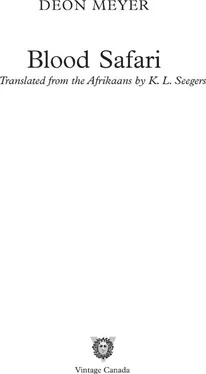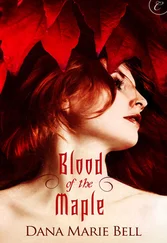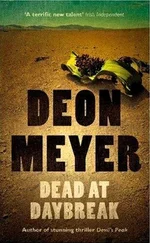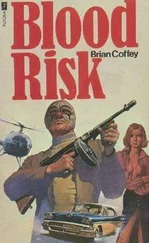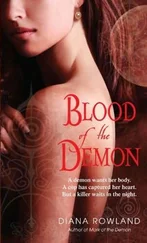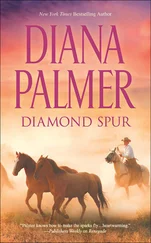Deon Meyer - Blood Safari
Здесь есть возможность читать онлайн «Deon Meyer - Blood Safari» весь текст электронной книги совершенно бесплатно (целиком полную версию без сокращений). В некоторых случаях можно слушать аудио, скачать через торрент в формате fb2 и присутствует краткое содержание. Жанр: Старинная литература, на английском языке. Описание произведения, (предисловие) а так же отзывы посетителей доступны на портале библиотеки ЛибКат.
- Название:Blood Safari
- Автор:
- Жанр:
- Год:неизвестен
- ISBN:нет данных
- Рейтинг книги:4 / 5. Голосов: 1
-
Избранное:Добавить в избранное
- Отзывы:
-
Ваша оценка:
- 80
- 1
- 2
- 3
- 4
- 5
Blood Safari: краткое содержание, описание и аннотация
Предлагаем к чтению аннотацию, описание, краткое содержание или предисловие (зависит от того, что написал сам автор книги «Blood Safari»). Если вы не нашли необходимую информацию о книге — напишите в комментариях, мы постараемся отыскать её.
In Blood Safari
A complicated man with a dishonorable past, Lemmer just wants to do his job and avoid getting personally involved. But as he and Emma search for answers from the rural police, they encounter racial and political tensions, greed, corruption, and violence unlike anything they have ever known.
Blood Safari — читать онлайн бесплатно полную книгу (весь текст) целиком
Ниже представлен текст книги, разбитый по страницам. Система сохранения места последней прочитанной страницы, позволяет с удобством читать онлайн бесплатно книгу «Blood Safari», без необходимости каждый раз заново искать на чём Вы остановились. Поставьте закладку, и сможете в любой момент перейти на страницу, на которой закончили чтение.
Интервал:
Закладка:
I read. To be described in the Guinness Book of Records as ‘the most fearless animal in the world’ is no mean feat, especially when the animal stands a mere thirty centimeters tall and weighs fourteen kilograms at most.
A man who went into hiding when he was suspected of murder was not necessarily fearless.
The badger’s appetite for snake seemed insatiable; we once watched a twelve-kilogram male eat ten metres of snake over a period of just three days. The author went on to describe a badger that had caught a puff adder, was bitten, but in three hours was up and about and consumed its prey.
Unfortunately there hadn’t been one around the night before last.
I heard her.
I put down the magazine and listened, to make sure. Quiet sobs in the bedroom.
Damn.
What should a bodyguard do?
I sat still.
Bouts of weeping were interspersed with the sobs, the sound of total heartbreak.
I got up and went over to the doorway. I peered in cautiously. She lay on the bed, her body racked with her crying.
‘Emma.’
She didn’t hear me.
I repeated her name, louder, more carefully. She didn’t respond. Slowly, I went in, bent down and put my hand on her shoulder. ‘Emma.’
‘I’m sorry,’ she said through the sobs.
‘No need to be sorry.’ I patted her shoulder and it seemed to help a little.
‘Nothing makes sense, Lemmer.’
Two hours ago she had been the wildcat. ‘Never mind,’ I said, but that was no comfort.
‘Nothing.’ She wiped her nose with a soggy tissue and abandoned herself to weeping.
‘There, there,’ was all I could think of to say. It wasn’t very effective. I sat down on the bed beside her and she shifted, sat up and wrapped her arms around me. Then she let loose and wept as if the world would end.
It took a quarter of an hour for her to cry herself out on my chest. She clung to me initially as if I were a lifebuoy, while I continued to pat her back awkwardly, without the faintest idea of what I should say in addition to ‘there, there’. But she calmed down, the sobs diminished, and her body relaxed.
Then she fell asleep. I didn’t realise it at first. I was too conscious of my cramped legs, my deficiency with words, the warmth of her body against me and her scent and the dampness of her tears on my shirt. Eventually, I realised that her breathing was slow and deep and, when I looked, that her eyes were closed.
I eased her softly down against the pillows. The air conditioning had made the room cool, so I pulled the bedspread over her and crept back to my chair.
I would have to reassess my opinion of her. She might just be a lovely young woman who wanted her brother back very badly. Maybe hope had faded with every fragment of new information, but she’d held fast to it, had clung to the possibilities of conspiracies and secrets, until this morning. Now she was trapped between two equally unacceptable alternatives: her brother was Cobie de Villiers – and a murderer. Or he was neither. It would be like losing him all over again.
Or maybe I should be careful. Maybe I should rewrite Lemmer’s Law of Small Women so that it read: Don’t trust yourself.
I couldn’t concentrate on the magazine. My hand remembered the contours of Emma’s back and my heart remembered her helplessness and despair.
I was just the bodyguard, the one available. She would have cried on anyone’s shoulder.
She was an intelligent, socially adjusted, extremely rich, highly educated and attractive young woman, and I was Lemmer from Seapoint and Loxton. I should not forget that.
I realised that it was the second time in twenty-four hours that I had put Emma le Roux to bed. Perhaps I should ask for a bonus.
18
Late that afternoon, Emma spent more than an hour in the bathroom. When she came out she said, ‘Shall we eat?’ You couldn’t see that she’d been crying. It was the first time I’d seen her in a dress. It was white, with tiny red flowers, and it left her shoulders bare. She had white sandals on her feet. She looked younger, but her eyes were old.
We walked through the dusk in silence. The sun slipped away behind dramatic towers of thundercloud in the west. Lightning flickered in the snow-white cumulus. The humidity was unbearable and the heat incredible. Even the birds and insects were still. Nature seemed to be holding its breath.
Susan from reception, the Afrikaner blonde who would speak only English, intercepted us on our way to dinner. ‘Oh, Miss le Roux, how are you? I heard about the mamba, we are all so sorry. Is your suite OK now?’
‘It’s fine, thank you very much.’ Muted, clearly still depressed.
‘Wonderful. Enjoy your dinner.’
As we sat down, Emma said, ‘I really should speak to her in Afrikaans.’
‘Yes,’ I said without thinking.
‘Are you a language fanatic, Lemmer, a taalbul? She asked without much real interest, as if she already knew that I would avoid the question. Or it might have been part of the new depression.
‘Sort of …’
She nodded absently, and reached for the wine list. She stared at it for a while and then looked up at me. ‘I’m so silly, sometimes,’ she said softly.
I saw that there were shadows under her eyes that the light makeup couldn’t disguise. She tried to smile, but struggled. ‘If I spoke Afrikaans to her, there would be this moment. She would say, “Oh, are you Afrikaans?” and pretend to be surprised, but we would all know that she had known all along and it would be this moment of … discomfort.’ She attempted to smile, but didn’t succeed. ‘And that’s typical Afrikaner. We always avoid discomfort.’
Before I could think of a response, she turned back to the wine list and said with determination, ‘Tonight we are going to drink wine. What would you like?’
‘I’m on duty, thank you.’
‘No, not tonight. White or red?’
‘I’m not really a wine drinker.’
‘A beer?’
‘A red Grapetiser would be nice.’
‘Do you drink at all?’
‘Not alcohol.’ I depended on her not to ask more. As with the Afrikaans question, there was enough probability of an uncomfortable answer. I was wrong, as I had been in most of my predictions of Emma.
‘Is it a matter of principle?’ she asked carefully.
‘Not really.’
Emma shook her head.
‘What?’ I said.
She waited before answering, as if she needed to gather energy. ‘You are an enigma, Lemmer. I always used to wonder what it meant when I read about someone who was an enigma, but now I know.’
Maybe it was because she had referred to me as ‘stupid and silent’, or perhaps it was because I wanted to cheer her up, that I said, ‘Explain to me what’s so great about alcohol, because I don’t get it.’
‘Don’t tell me that’s an invitation to a real, actual conversation?’
‘You said I’m “off duty” tonight.’
‘Aah.’ She put the wine list down. ‘Very well.’ She looked up at the candle sconce above us, drew a deep breath and spoke, slowly at first, trying to find the right words. ‘I like red wine. I like the names. Shiraz. Cabernet. Merlot. Pinotage. They roll beautifully off the tongue, they sound so secretive. And I love the complex aromas. There is a mystique to the flavours.’
Then more quickly, freeing herself: ‘It’s like sailing on a trade route past islands of fruit and spices. You can never see the islands, but from the aromas that waft over the water, you can guess what they look like. Exotic, bright colours, dense forests, beautiful people dancing by firelight. I love the colours and the way they look different in sunlight or candlelight. And I love the flavour, because it forces me to taste, to concentrate, to roll it around my tongue and look for the goodness. And I like all the things it stands for – the bonhomie, the company of friends. It’s a social symbol that says we’re comfortable enough with each other to enjoy a glass of wine together. It makes me feel civilised and grateful that I have the privilege to enjoy something that has been made with so much care and knowledge and art. So, tell me what’s not good about that.’
Читать дальшеИнтервал:
Закладка:
Похожие книги на «Blood Safari»
Представляем Вашему вниманию похожие книги на «Blood Safari» списком для выбора. Мы отобрали схожую по названию и смыслу литературу в надежде предоставить читателям больше вариантов отыскать новые, интересные, ещё непрочитанные произведения.
Обсуждение, отзывы о книге «Blood Safari» и просто собственные мнения читателей. Оставьте ваши комментарии, напишите, что Вы думаете о произведении, его смысле или главных героях. Укажите что конкретно понравилось, а что нет, и почему Вы так считаете.
